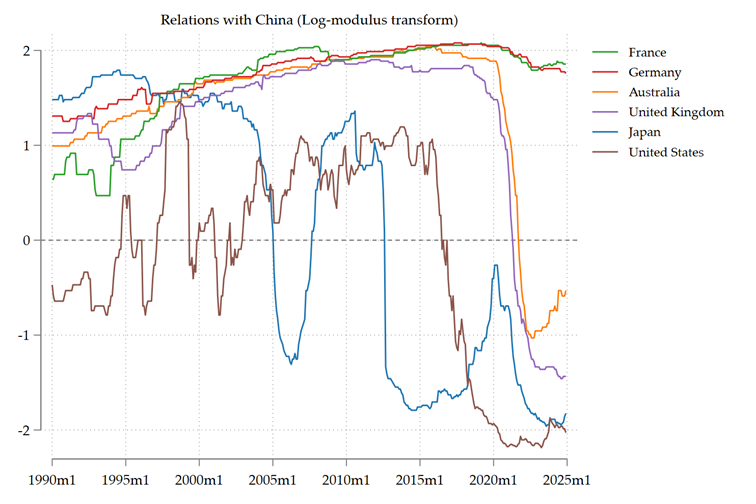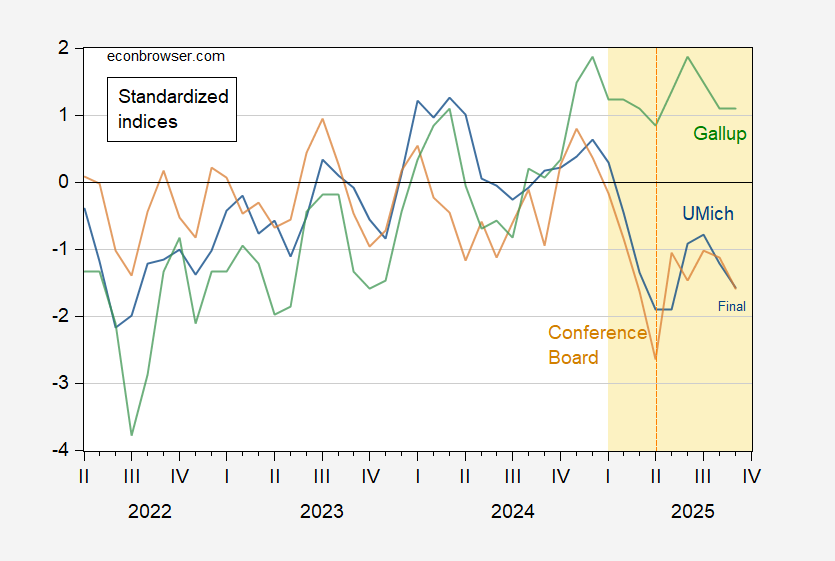
1021. Bulging Biceps Don’t Win Modern Wars
An argument that modern warfare relies more on technology and intelligence than physical strength, criticizing misguided military leadership and outdated notions of masculinity in combat.
your daily dose of economic commentary

An argument that modern warfare relies more on technology and intelligence than physical strength, criticizing misguided military leadership and outdated notions of masculinity in combat.

A government shutdown is expected to postpone important economic reports, notably the monthly job market update, at a critical time for the economy.

Mortgage applications fell significantly due to rising rates, impacting refinance activity and purchase applications, influenced by broader economic conditions and job market health.

The post explores the concept of network states, highlighting challenges in their formation and proposing solutions for creating stable, functional communities in a digital age.

Bill Chappell discusses how the legend of Mothman has revitalized tourism in its West Virginia hometown, attracting thousands of visitors annually.

Anthony Kuhn discusses how China's ride-hailing companies address issues of cleanliness in vehicles where drivers often sleep due to long working hours.

James Doubek discusses the challenges coffee growers face, including climate change, labor shortages, and low incomes, highlighting the industry's current state.

Menzie Chinn discusses the evolving geopolitical relations between China, the UK, and Australia in response to US-China dynamics.
An argument that maritime shipping noise negatively impacts whale populations, suggesting economic solutions to mitigate this environmental externality while balancing trade benefits.

Menzie Chinn discusses the decline in consumer confidence and its implications for economic sentiment and consumption patterns across different income groups.

The post highlights various stories illustrating economic principles and trends, including consumer behavior, pricing strategies, and perceptions of government.

An argument that house prices exhibit a seasonal pattern influenced by distressed sales, with recent trends showing increased seasonal swings despite fewer distressed sales.

The post explains value added tax as a non-discriminatory consumption tax, contrasting it with tariffs and discussing misconceptions held by politicians.

The founder of a major music streaming service announces his transition from CEO to Executive Chairman, with two co-CEOs taking over leadership.

An argument that press freedom is deteriorating across Asia, exemplified by the imprisonment of citizen journalist Zhang Zhan in China.

Paul Krugman discusses the irrationality of Trump's support for coal over wind power, highlighting economic realities and the cultural motivations behind energy policy.

Bill McBride discusses the unchanged job openings at 7.2 million in August, along with related labor market statistics from the BLS report.

Bill McBride discusses the July home price indices, highlighting a 1.7% year-over-year increase and the cooling trend in the housing market.

An argument that Germany's successful adaptation to past economic shocks may not suffice against future challenges posed by China’s economic rise.

Andrea Hsu discusses the challenges faced by federal workers who accepted Trump's buyout, including fear and uncertainty about their future.